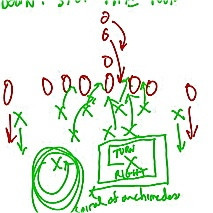Sales used to be a lot easier – and I’m talking about the late 1990s, not the 1950s. You built relationships with customers and stood out when you presented enterprise solutions vs. single products and services.But now, the rules have completely changed. Marketing Sherpa tells us purchasing committees are growing to include 8 or more decision makers on over 50% of purchases, making selling more complex. Online communities and the web have surpassed all other mediums for providing information to buyers. The B2B purchase cycles have increased with $1M purchases taking six months or more to reach a decision.
The Corporate Executive Board’s research highlights the traits of the most successful sales people. Post recession, these star performers teach for differentiation, tailor for resonance and assert control. The days of bringing in donuts to entice decision makers to meet in the conference room is gone.
This doesn’t happen by accident. Sales leaders have to provide the tools and training to enable sellers in this complex environment. The problem? Sales and marketing teams are not fond of guidelines, rules and process.
You can take advantage of this football season and wrap all your guidance for sellers up in one program and call it a Sales Playbook. I like to say this is the Trojan horse method. No one sees it coming. Who wouldn’t want to use the plays of top performers? Sales people are wired to win, so branding your sales process as a playbook hides the fact it is a process. Rather, it is a framework for success.
The sports metaphor of a playbook works for reasons beyond just the fact that many people are sports fans. A playbook is a game plan composed by the head coach and his/her staff based on intensive competitive intelligence, rigorous SWOT valuation of its own team and strategy supported by very detailed tactics, all in the hopes of winning. It’s not a static document. During the course of the season, mistakes are corrected, experiments are conducted and existing plays are refined based what the team learned.
You will have many opportunities to extend this metaphor throughout your implementation phase. This example of a sixth-grade football playbook can help early in the roll out:
Your audience will likely agree most business functions have rules and guidelines for success. Accountants have the GAAP accounting rules. Manufacturing teams have ISO 9000, TQM, and/or Six Sigma. Even sixth-grade football teams have a playbook. In fact, they have a playbook that is 42 pages long. Think about it — selling is more complicated than what a sixth-grade football team does, so hopefully everyone can agree a sales playbook makes sense.
Keep up-to-date with Fast Track Tools by subscribing to our blog so you will be the first to know about special, free offers.
photo from: avinashkun nath
